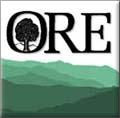Mangos are an important source of income and nutrition
Mangos represent the largest percentage of the tree population throughout Haiti. Mangos are an important source of income and nutrition to rural families. USAID estimates that there are 10 million mango trees growing in Haiti. However, only about 10% of the existing trees are the Madame Francis commercial variety. The remainder are local varieties which have little commercial value. Low quality fruit trees which are cut down for fuel or wood products. Transforming low quality fruit trees by grafting is an excellent way to protecting the environment and generate income. Only high revenue trees - such as commercial quality fruits and spice trees - will survive deforestation. Trees which earn between $50 and $100 a year are too valuable to lose!
A look at mangos in Haiti




Support our efforts to give farmers more high value trees



